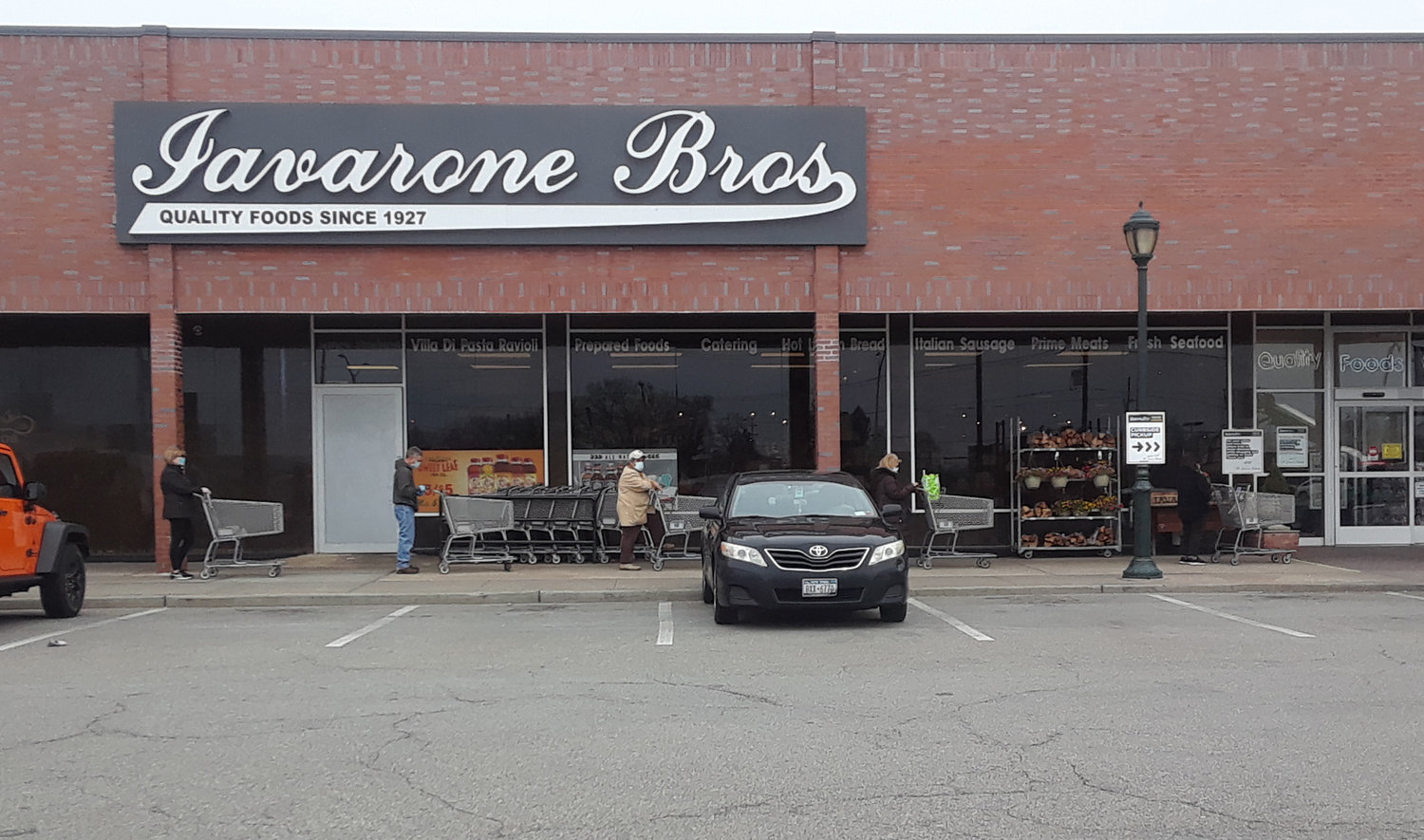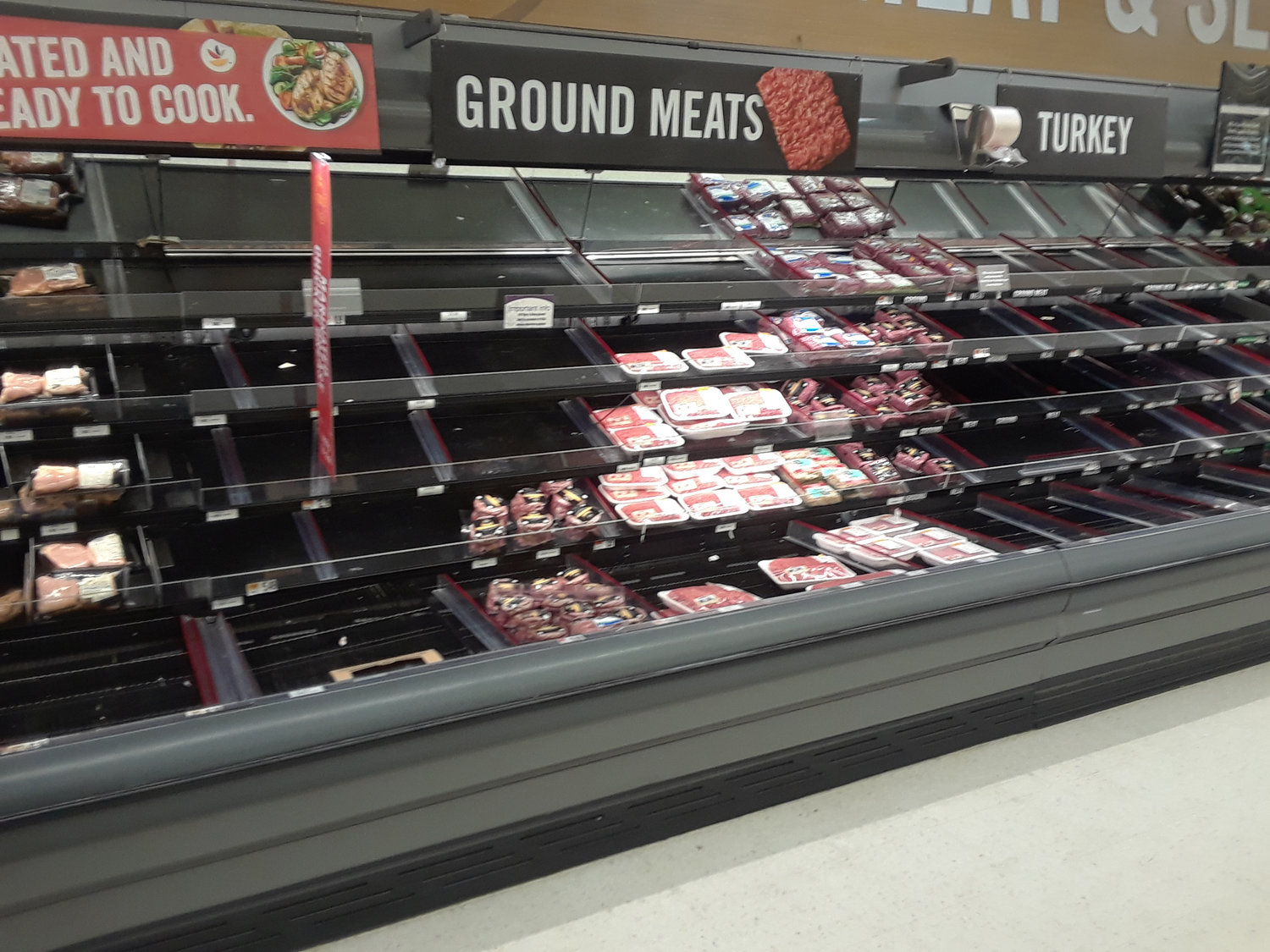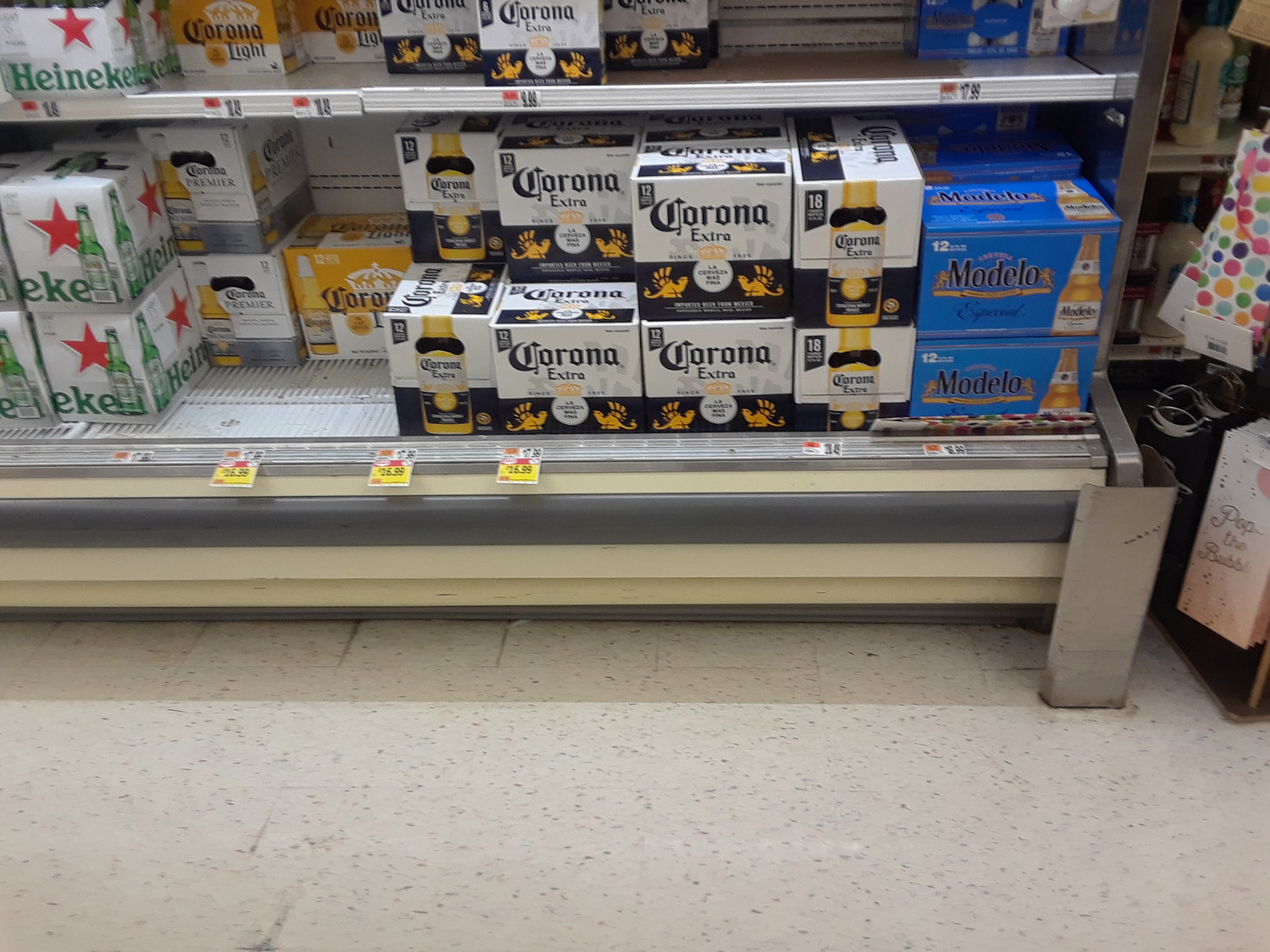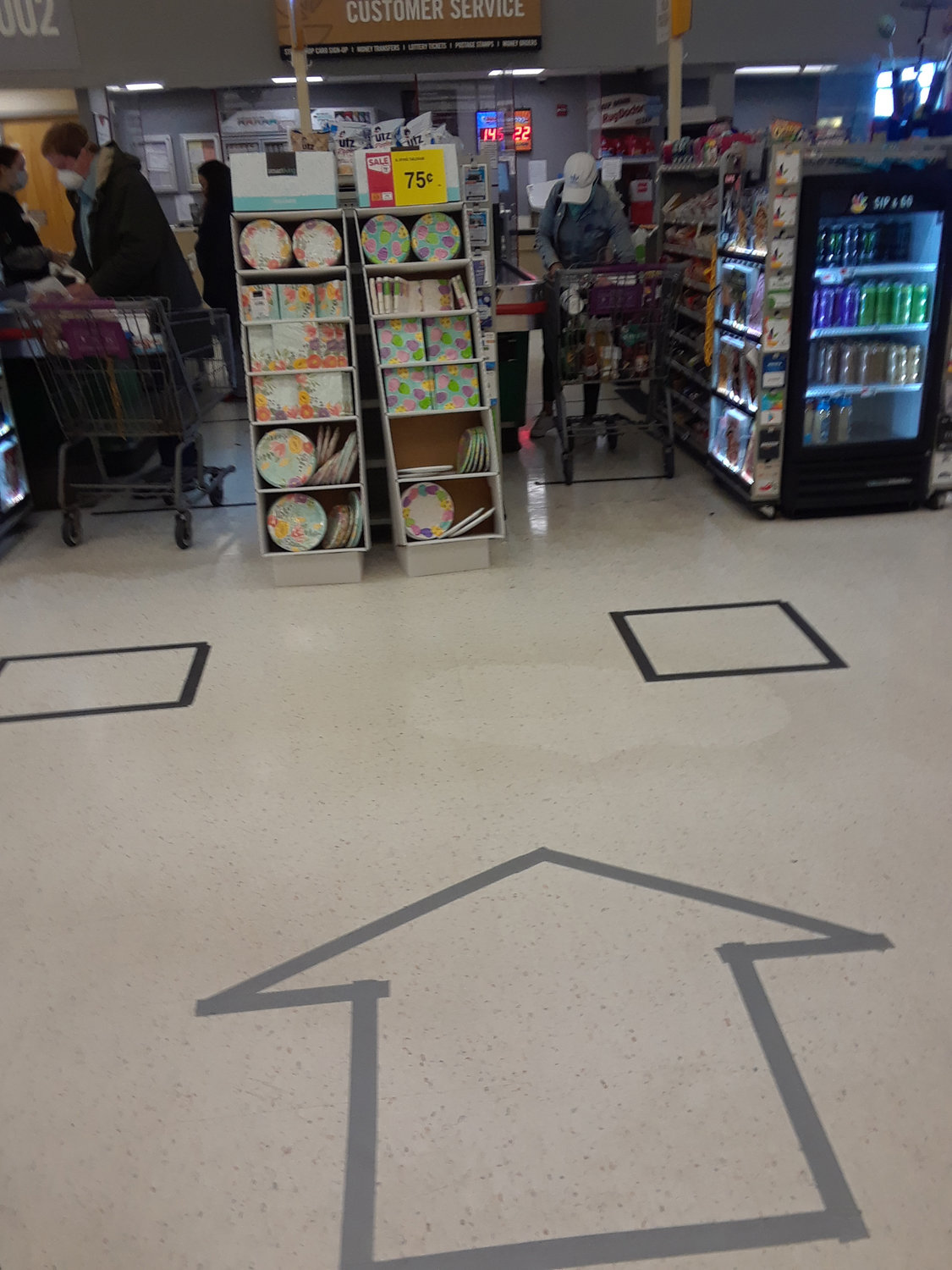Food foraging more difficult
Shortages beginning to appear in some stores
It was early Monday morning, and despite the hour, senior citizens were lined up in impressive numbers, prepared to take advantage of the store’s early-bird, seniors-only admission.
Most stores now open early, offering seniors the first 90 minutes of their business days. One North Wantagh chain grocery is typical, opening to those 60 and older from 6:30 to 8 a.m. Iavarone Brothers, on Wantagh Avenue, offered the 9-to-10 a.m. hour for senior customers.
Inside the North Wantagh store, shoppers moved with quiet efficiency. The store had marked off one-way aisles and placed plastic coverings on keypads and other objects shoppers were likely to touch. These were changed regularly by the cleaning crew, which was provided by an outside contractor hired by the parent company.
Grocery shopping, that most prosaic of day-to-day activities, has begun to feel like hazardous duty in Seaford and Wantagh, and while markets of all sizes struggle to keep their employees and their stores safe and their premises stocked and disinfected, they are facing challenges unlike any before.
At Salpino Food Market, on Merrick Road, on the border of Wantagh and Seaford — and with a second location in North Bellmore — one day bleeds into the next, with constant demand for more product. “They, as well as their employees, have been going above and beyond for weeks on end without a day off,” said Seaford Chamber of Commerce member Donna Jebaily.
Empty shelves
Keeping the Salpino stores stocked without raising prices has been a challenge, cutting into profits in a business already notorious for its tight margins, managers Paul Barbieri and Larry Avvenire conceded. But the stores’ delivery business has helped close the gap, they said.
“It all happened pretty quickly,” Barbieri said. “First thing we did is home deliveries and curbside pickups. In less than a week, it really blew up. We went from about 10 deliveries a day to about 50, seven days a week for the last three weeks. It’s been pretty overwhelming, but we’re doing everything we can.”
Salpino has not hired an outside company to handle deliveries. Staying true to the family-owned business model, they do it themselves. “It’s all family that’s delivering the food,” Barbieri said. “We even had family members come in from Brooklyn to help out.”
The big chain grocery stores wrestle with many of the same issues. Stores would normally place extra orders before holidays or in advance of bad weather, according to an executive at one of the larger grocery chains responsible for several dozen markets in the metropolitan area, including Seaford and Wantagh. Like most chain grocery employees, he requested anonymity, both for himself and his company.
“After such events, the stores could replenish,” he said, “but not over this consistent daily panic shopping.”
With just two stores, Salpino was able to plan more concretely. “We were a little proactive and able to run a lot more orders in advance,” Barbieri said. “We tripled and quadrupled orders, seeing this coming.”
One company that has lent a helping hand to Salpino is Majestic Foods, in Huntington Station, Barbieri said. “They bent over backwards to help us with meats, including chicken cutlet and chopped meat, and our Boars Head products,” he said.
According to the chain store executive, supermarkets in his area normally receive six or seven weekly deliveries of groceries, as well as three or four deliveries of frozen food. These have all been cut by a third, he said.
“You can’t go to the store with a list of menus and ingredients,” the manager cautioned. “You have to wait and see what’s available.”
Stores also normally receive three deliveries of paper goods. “The logistics chain could not — and still cannot — keep up,” the executive said. “As brand warehouses were depleted, orders were placed with other suppliers that couldn’t be fulfilled, because their own supply chains were stressed.”
None of the big chain stores have been able to keep paper goods in stock, and most have rationed them for the past three weeks. The best-stocked store on Saturday had perhaps 200 single rolls of toilet paper on the shelf, with a two-roll limit per customer.
And the supply chain has faced the same difficulties as every other business. Key employees or their family members may be quarantined with Covid-19, or they may be unavailable due to their families’ child care needs.
“The Covid disease is also affecting staffing in stores, warehouses, trucking and production lines,” the executive said. “Demand cannot be met.”
To glove or not
Starting about a week ago, masks were no longer optional for grocery store employees, although many have been taking precautions for several weeks. But following Gov. Andrew Cuomo’s order last week that all New Yorkers wear masks in public where social distancing might be difficult, some grocers have begun requiring customers to wear some sort of face covering as well. Iavarone Brothers, Salpino and North Shore Farms, in North Bellmore, are among the local merchants with such requirements.
But last weekend, it was surprising to see how many customers took no precautions at all. On Thursday, Saturday and Sunday, a Herald-Citizen reporter visited large groceries in Seaford, Wantagh and Levittown, and on two of those days, bare faces and hands far outnumbered masks and gloves in all of them.
As an additional safety precaution, at least one local grocer is ignoring the ban on single-use plastic bags that began on March 1. “We still had them, and it just made sense to put them out,” the store’s assistant manager said.
Enforcement of the ban was postponed until May 15, but many stores had already recycled their outlawed stocks. It was unclear whether they would reorder.














